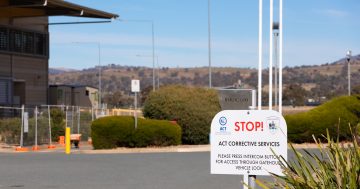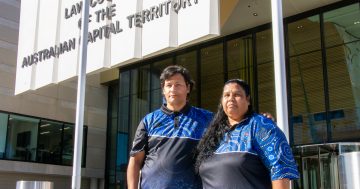
The home in which Bradyn Dillon was murdered in February 2016. Photo: File.
Despite reports being made to authorities about injuries seen on Bradyn Dillon, it has been ruled that ultimately no one could have predicted he would be murdered by a “sadistic monster” – his own father.
The findings from the coronial inquest into the murder of the nine-year-old by his father Graham Stuart Dillon were handed down on Thursday (29 April) by Coroner Margaret Hunter.
While she solely attributed the boy’s death to his father, she did identify “sliding door moments” of missed opportunities by authorities in the lead up to the boy’s death.
Bradyn died after being severely beaten by Dillon in February 2016 after months of physical abuse.
In a highly emotional hearing, Coroner Hunter could be seen fighting back tears when addressing Bradyn’s mother.
“It was clear despite your desperate attempts to engage with various agencies about your well-founded fears for [Bradyn’s] safety, those concerns fell on deaf ears,” she said.
Coroner Hunter said Bradyn’s mother had said she felt she was looked down on by agencies, and “that was probably true”.
“You did everything in your power to try and save [Bradyn],” she said, and that, unfortunately, she was not listened to by those who should have listened to her.
Coroner Hunter added it was not an unusual phenomenon that a woman was not believed when making a complaint about domestic violence.
She said Bradyn was a quiet and extremely polite boy whose teachers praised him as always contributing to a safe and welcoming classroom environment.
“By all accounts, he was a delightful little boy whose life was cut short by a sadistic monster who was his father,” she said.
Coroner Hunter described Dillon as a “master manipulator” who lied extensively.
The lies included saying he had been given custody of Bradyn when there had been no family court proceedings to decide it, as well as about hitting his son, telling teachers and Child and Youth Protection Services (CYPS) workers lies like he had been bruised after falling off his pushbike.
“As a result of those lies, CYPS caseworkers based their statutory decision making on assuming that the information given to them by Graham Dillon was accurate,” she said.
Coroner Hunter said numerous reports were made to CYPS over bruising to Bradyn in 2014 and 2015. The last report was made six months before his death, but none met the “threshold test” and were closed.
She said factors within the CYPS that worked against Bradyn included a consistently minimal application of risk assessment and shortcomings in investigating the accuracy of the information given by Dillon, as well as shortcomings in identifying thresholds in disclosures made by Bradyn.
Also, no investigation was conducted over reports made by teachers in August 2015, and too much reliance was placed on previous reports where the outcome was “no concerns and no further action”.
This was in addition to the large volume of intake work for the CYPS, which was around 18,600 cases last year.
“It would be extremely difficult to conduct thorough analysis with that number of cases coming through the door,” Coroner Hunter said.
She briefly discussed several domestic violence and filicide cases, including Luke Batty, who was killed by his father in 2014.
She said during the inquest into Luke’s death, the state coroner said filicide was a rarity.
“I would like to think that was true; however, given the very recent news of fathers killing their children, it is unfortunately not such a rarity at all,” she said.
Ultimately, Coroner Hunter found while numerous reports indicated Dillon had abused Bradyn, none could be said to be a precursor to Dillon killing his son.
“It is my view that no one could have predicted that Graham Dillon would murder his son,” she said.
In response to the findings, ACT Health Minister Rachel Stephen-Smith said the circumstances of Bradyn’s death were “horrific and heartbreaking”.
“As a community, we share a collective responsibility for the safety of our children and young people. Bradyn Dillon’s death was a tragedy that affected the entire community and raised awareness about the importance of reporting suspected child abuse and neglect,” she said.
“Since Bradyn’s death in early 2016, we have seen a significant increase in the volume of child concern reporting, and two additional frontline teams have been established to address an increase in child concern reports.”
She added that the ACT will carefully review the recommendations from the Coronial Inquest and consider how these can be addressed in the context of the reform agenda already underway.
Graham Stuart Dillon was sentenced in the ACT Supreme Court to 36 years in jail for the murder of Bradyn, with another five years for a series of other offences. He will be eligible for release in February 2048.




















